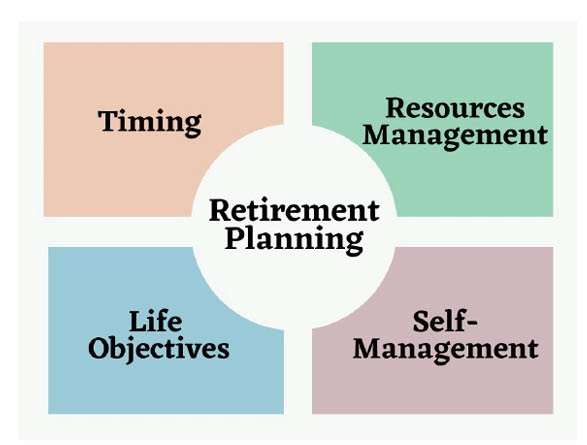Everyone who takes up a career is aware from the beginning that they will leave their jobs at some point in time. Even entrepreneurs and businesspersons know that they will have to leave their businesses at some point. There are many reasons and regulations that govern when and how people leave. Retirements are one such way by which people leave jobs and businesses they have been at for decades of their lives. The specific conditions for retirement differ between the public and private sectors. Even within the same sectors, there are differences in when and how people retire. Regardless of how and/or when we leave, we need to understand the psychological realities of retirement, because our mental health is sensitive to transitions, especially if they are profound.
The thought of, planning and transitioning into retirement is a significant life event change that should be faced and understood with reasonable clarity for successful coping. Many people love what they do at work. I have a friend who is an investment banker. He wouldn’t do anything in life other than investment banking. I have another childhood friend who lost three years of schooling because he insisted on getting admission into the Nigerian Defence Academy to be a military officer. I don’t think he wanted anything else in life other than to be a Nigerian Army Officer. He became one and died on the job. My mother is an information scientist and academic. I suspect she believes everything begins and ends with information science and that everyone should be an information scientist! But even for the people who do not love their careers like my two friends and mum, their jobs would have offered them a legitimate means of livelihood; They are building both working and social relationships out of their careers; They are building their families and giving them the best they could; Their careers are giving them the opportunities ‘to travel and see the world’; In Nigeria, our careers make it possible for us to discharge social responsibilities to our extended families and communities, etc.
The point is that we get attached to our jobs, places of work, and colleagues in gradual but deep ways. Our jobs give us identity, confidence, routine, goals, purpose, and opportunities. In return, we commit our intellect and invest our emotions into them. Thinking of and leaving our jobs can, understandably, create stress, anxiety and even depression for some. Hence, we need to understand the psychological challenges and opportunities in retirement so that we can build healthy coping and adjustment mechanisms.
The timeline: We can think of the psychological issues relating to retirement from a timeline perspective. In our twenties and thirties, we hardly bother about our impending disengagement. We think we are still light-years away from it. We get preoccupied with the immediate challenges in front of us about our careers and life such as obtaining more professional certifications and promotions, getting married and raising our families. From our late thirties to our early and mid-forties, while still chasing promotions, we probably are beginning to invest in transactions, assets, and ventures with a view to earning more legitimate incomes. Some would make money for us and others will teach us a lesson or two! For many, it is from our fifties that we begin to smell and taste a now certain-and-fast-approaching retirement. By our late fifties, we are surrendered to the reality and are seriously considering what we will be doing with the rest of our lives after work.
- Headies 2023: Burna Boy, Rema, Asake, win big in US [Full winners list]
- Gunmen open fire on buses, abduct passengers on Abuja-Lokoja road
Pre-retirement: If we focus on the last ten years prior to our disengagement, we can see the first one-third as a stage within which the individual still feels safely ‘far’ from retirement. We may just confidently remain in pursuit of seizing opportunities to execute our financial plans. But the interesting thing at this stage is that the preoccupation with technical (financial) tasks has a way of masking the undelaying psychological realities of retirement that finances do not necessarily address. However, as long as we are doing well in taking care of our families and investing in more assets, we probably feel good about our retirement ‘plans’. By the last one-third of the last ten years, we begin to count the years and months remaining, for many, hoping we can delay the inevitable. This is when the emotions will begin to come in chunks.
Post-retirement: By retirement and immediately thereafter, any initial denial would have been removed even if not fully processed. Again, as in pre-retirement, there are factors that will need to be considered and settled, but many of which may be accompanied by decision paralysis. There may be a partial identity disruption and even diminished self-trust. All the questions will be whirling around in our heads – What void are we going into/What are we going to spend our time doing/What life structure should we build now for self-actualisation in a new context? How are we going to engage with others? Can we support our families financially? What about ageing, health, and death? What legacy do I want to leave behind?
Next week, we will begin to take up specific psychological issues and what we can do about them pre- and post-retirement.

 Join Daily Trust WhatsApp Community For Quick Access To News and Happenings Around You.
Join Daily Trust WhatsApp Community For Quick Access To News and Happenings Around You.